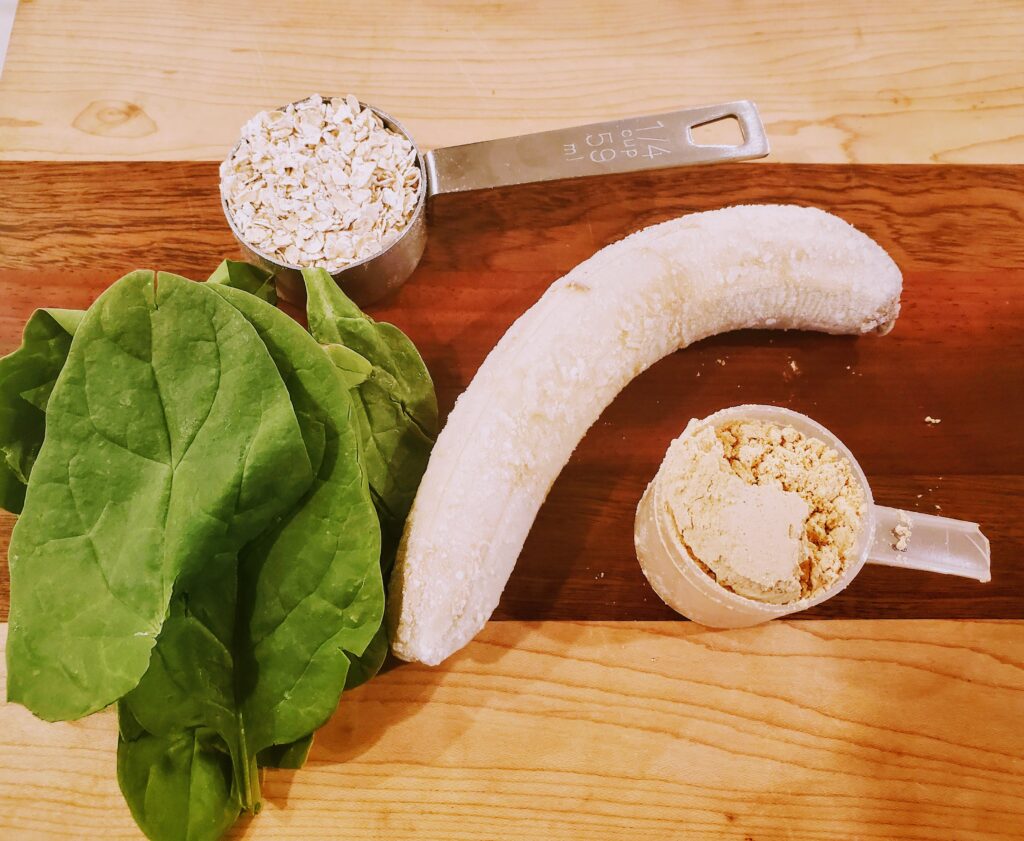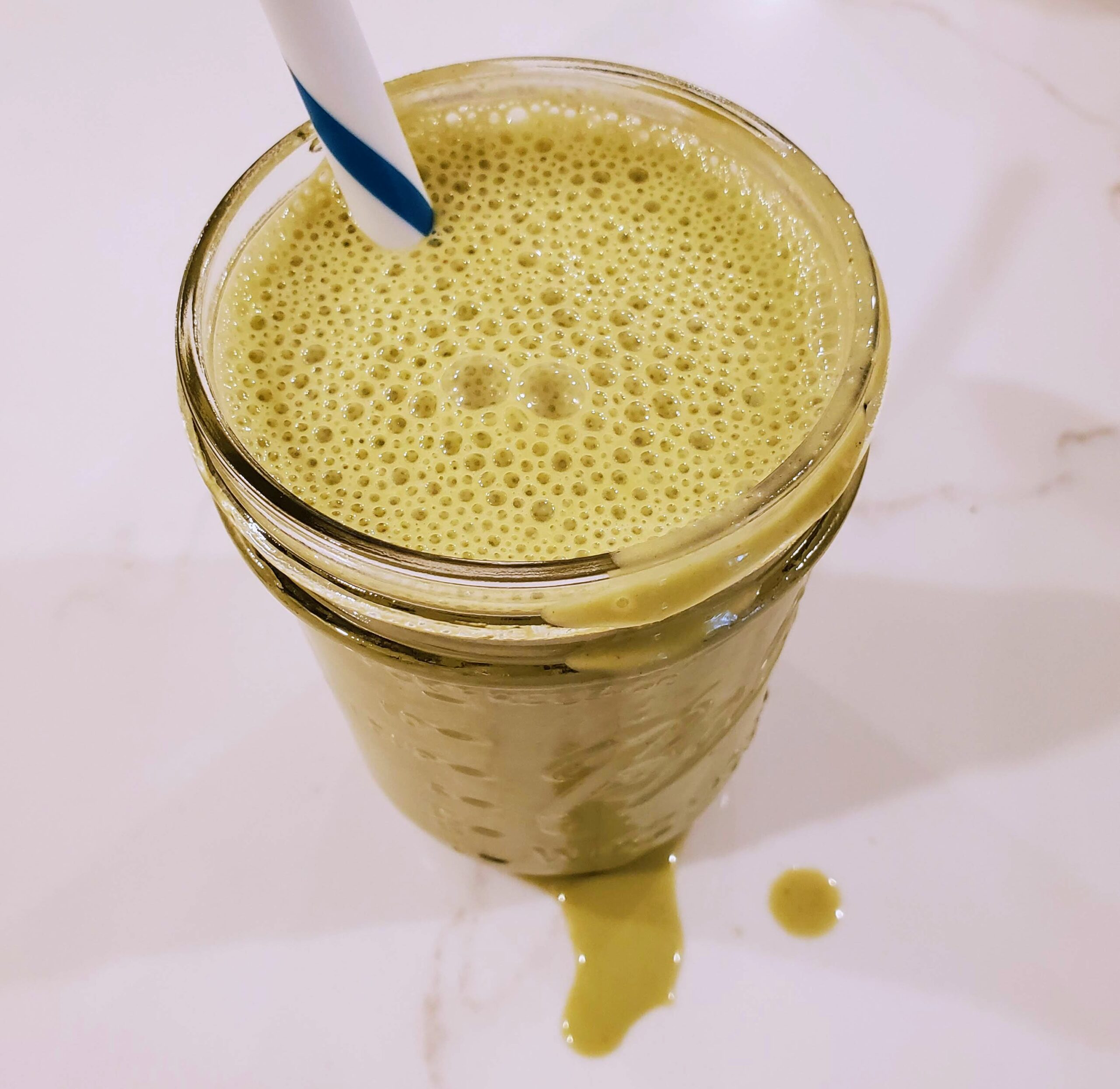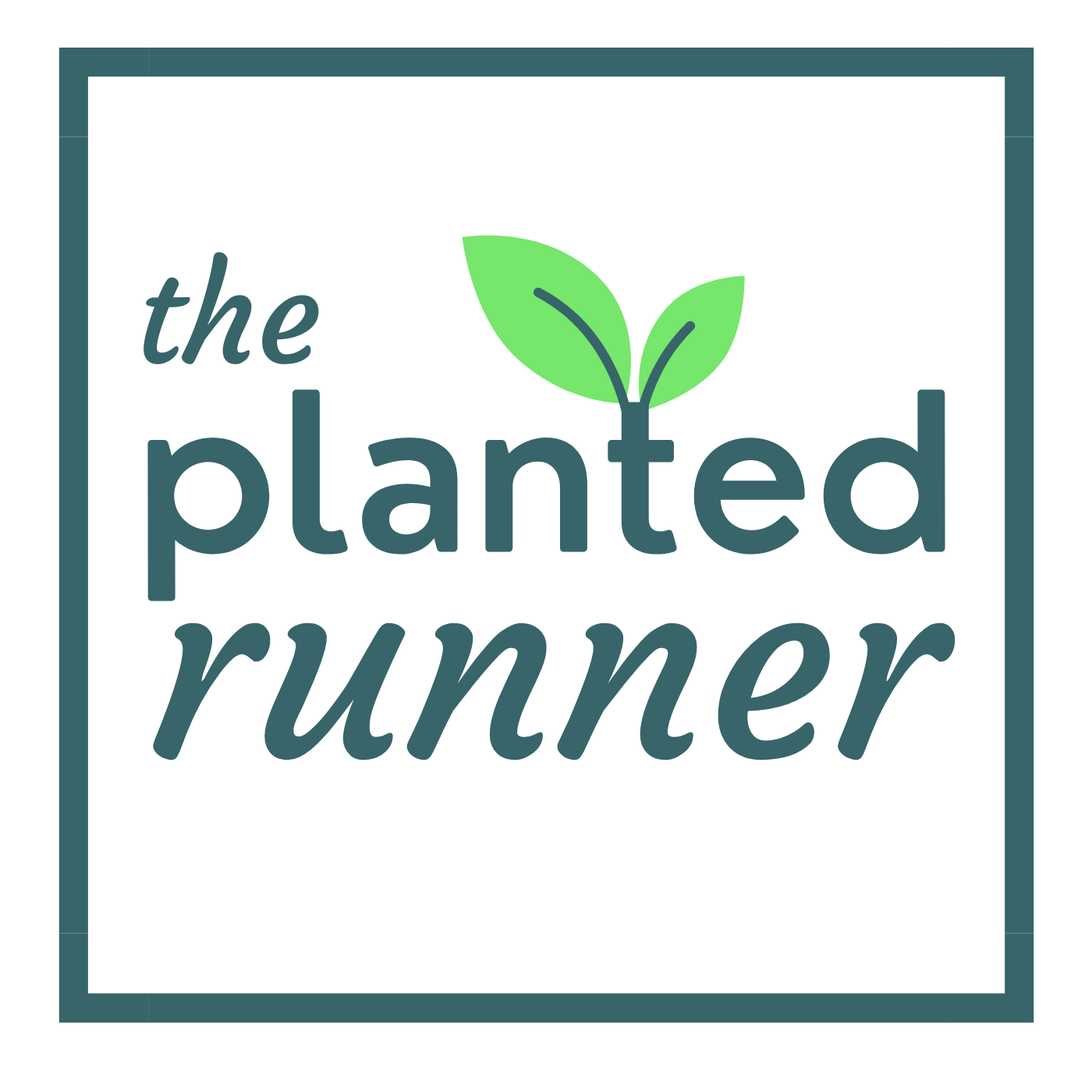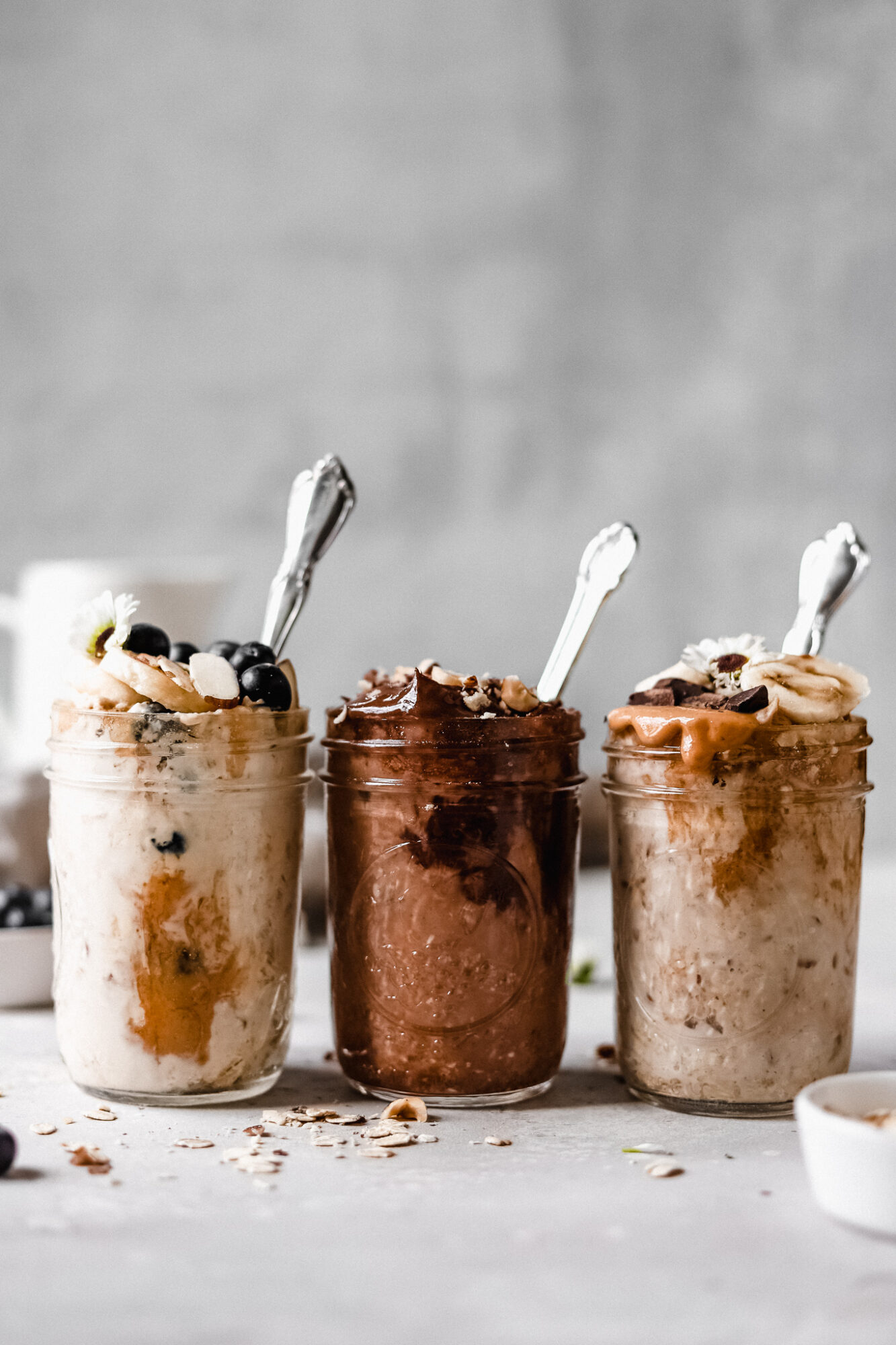As a plant-based athlete and running coach, I know protein is essential for recovery after a hard workout. Smoothies can be nutritionally perfect for recovery after running long or a hard track workout. They can also fuel your weight training session.
That said, I have not always been an advocate of smoothies. On the one hand, they are a great, convenient source of quick calories and nutrients if you are an athlete struggling to get in enough.
Smoothies are also a sneaky way to get in your daily greens!
But the downsides to smoothies are the very things that make them great. They can easily become excessive calorie-bombs if you are not careful. When I finally decided to track the calories of one of my favorite smoothie recipes, it had nearly 700! And that was just supposed to be a snack!
Since smoothies they are processed into a liquid, you can slurp down a large one in a couple minutes, bypassing your natural fullness cues.
If, however, you were to eat the smoothie ingredients in their whole form, you would slow down, stop when you got full, and potentially eat less later.
This study on both lean and overweight people shows that drinking your fruits and veggies instead of eating them, can lead to weight gain, because you are less likely to compensate for liquid calories, meaning you eat more later.
In other words, because our bodies have a hard time registering liquid calories, if you are trying to lose weight, eating your smoothie ingredients instead of blending them up, can really help.

Another concern is the source of your protein. Protein powder, if you choose to include it in your recovery smoothie, needs to be a high quality one. Many athletes, especially plant-based or vegans, can come up short when it comes to protein, especially on strength training days or recovery days. So a convenient way to boost protein is to add a powder.
I try to eat whole foods as much as possible. Obviously, protein powders are highly processed supplements, not whole foods, so I’m naturally wary of them.
But beyond a philosophical slant, a large number of protein powders, especially plant-based and organic powders, have been shown to contain a concerning amount of naturally-occuring heavy metals.
So why have I gotten back on the smoothie train? The simple answer is, I think they can be a helpful addition to an athlete’s diet, if done right and not relied upon all the time.
Lately, I’ve been running less and lifting weights more, trying to mix things up and bumping up my protein has been helpful in changing my body composition. It also keeps me full until lunch. I haven’t noticed that I’m eating more to compensate for the liquid calories, but the jury is still out.
So you’re probably wondering, “what about the protein?” Well, here’s the thing, I’m not using a traditional, super pricey, protein powder.
I’m using PBfit, a relatively inexpensive peanut powder, for my recovery smoothies. I then add a little oatmeal to balance out the amino acid profile and voilá!
Yes, it is a powder, not a whole food, but peanut powder is made by pressing out and removing the oil from the peanuts. To me, that’s a lot closer to a whole food than extracting out one nutrient and mixing it with a bunch of other extractions and then processing into a powder.
And from what I’ve read, peanuts have been shown to have a relatively low risk of heavy metal absorption unlike some of the high priced protein powders on the market.
But, if you’re a die-hard (like I can be sometimes), and only want to use whole foods in your recipe, feel free to use peanuts or natural peanut butter instead. Then again, blending is a processing technique too, so a smoothie isn’t technically whole foods anyway. But hey, we’ve all got to make choices somewhere!

PB Recovery Smoothie
Equipment
- blender
Ingredients
- 1 cup unsweetened almond milk
- 1 frozen banana
- .25 cup PB Fit Peanut Powder
- 1 cup spinach
- .25 cup oats
Instructions
- Blend all in a high-speed blender and enjoy!

